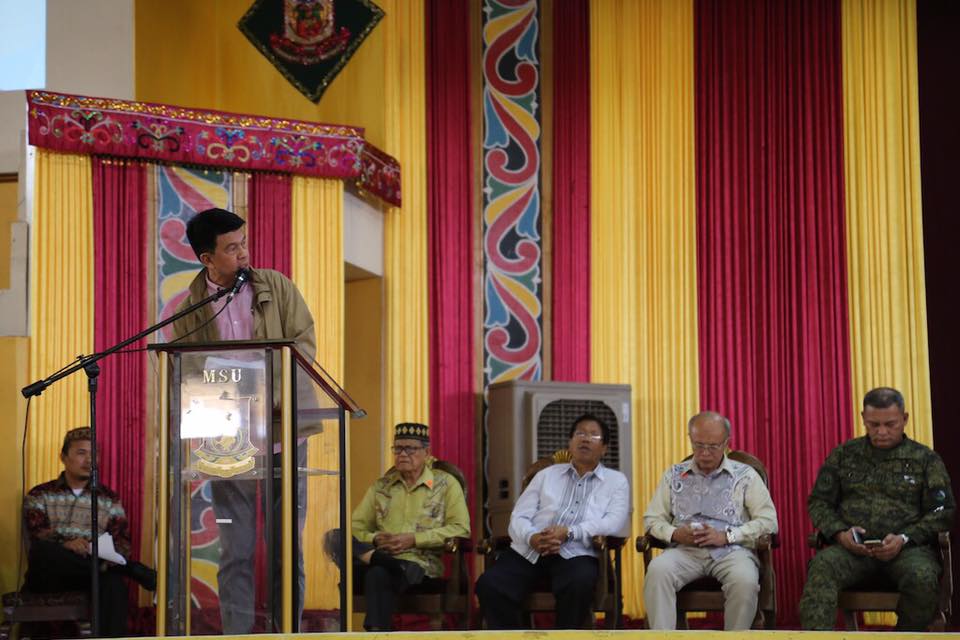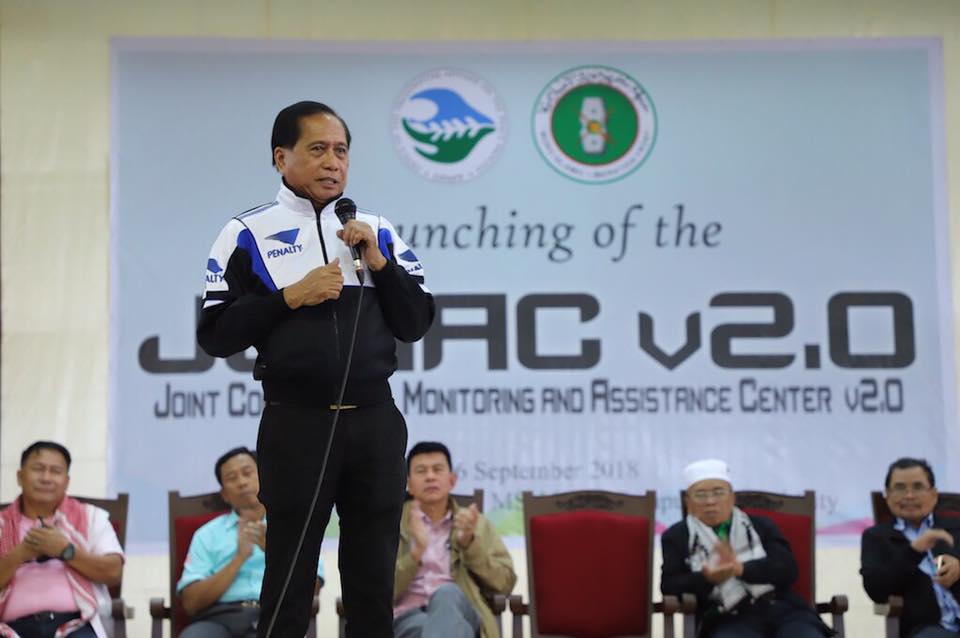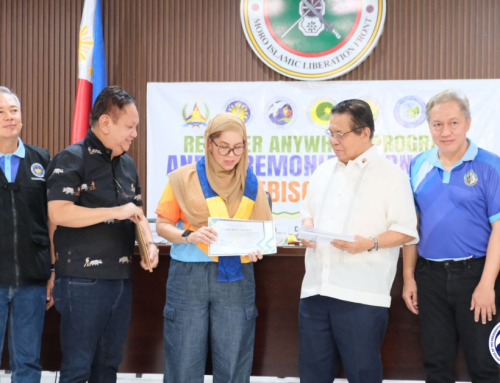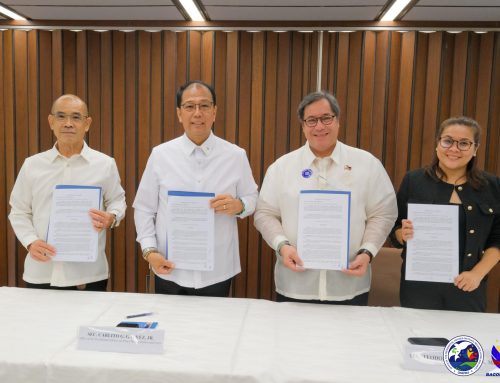MARAWI CITY, September 6, 2018 — The Peace Implementing Panels of the Philippine government and the Moro Islamic Liberation Front (MILF) reactivated on Thursday the Joint Coordination, Monitoring and Assistance Center (JCMAC), which was a key mechanism in rescuing hundreds of hostages at the height of the armed conflict in this city last year.
The new mandate of the JCMAC is to establish a neutral platform and a mechanism for the people of Marawi City and the Lanao areas to raise their concerns to the government and participate in the efforts to rehabilitate and rebuild Marawi City and the Lanao areas.
“We came out with the new version of JCMAC to act as a sounding board for the people affected in the crisis and to help them recover,” Deputy Presidential Peace Adviser Undersecretary Nabil Tan said during the formal relaunching of the JCMAC inside the Dimaporo Gym at the compound of the Mindanao State University (MSU).

The JCMAC Version 2.0 (V2.0) headquarters will be located inside the MSU compound.
Tan, however, made it clear that the JCMAC is not a replacement of the ongoing efforts of the government in restoring normalcy in Marawi City.
The government and the MILF signed an agreement reactivating the JCMAC during a meeting early last month following the presentation of the Bangsamoro Organic Law (BOL) in Cotabato City.
Recalling the achievement of the first JCMAC, Tan highlighted the efforts of those who contributed in its successful implementation, particularly members of the Armed Forces of the Philippines (AFP) and the MILF.
“The JCMAC has given us proud moments. Without the close coordination with the army and MILF, our work would have been very difficult,” he said.
Tan also lauded the assistance provided by civil society and foreign donor agencies in the relief and recovery efforts during the crisis.
“Each stakeholder contributed to these accomplishments,” he said.
Mohagher Iqbal, the chair of the MILF Peace Implementing Panel, said their main goal is to provide help, in a modest way, to connect to various issues of the victims of the Marawi siege to the concerned government agencies.
“The MILF is here to continue to extend our modest help to our brothers and sisters,” he said.
“Let us be patient. Marawi will rise from the ashes,” he said.
As a testimony for the first JCMAC, Saipoding Mangotara, one of the victims of the siege whose wife was rescued by the volunteers, recalled the anguish during the month-long battle.
Saipoding shared how volunteers of the JCMAC helped him during the difficult times to rescue his wife.
“I will never forget you. My wife is now fully recovered,” he said.
The creation of the first JCMAC was an offshoot of a meeting between President Rodrigo Roa Duterte and the members of the implementing panels of the two parties, along with the top leadership of the MILF, at the start of the conflict in Marawi last year.
The JCMAC created two peace corridors: one to help extract trapped civilians in the conflict zone, and the other to provide a humanitarian corridor to bring needed food and other assistance to the victims of the siege.
The JCMAC V. 1 were able to rescue at least 255 civilians in the siege and allowed international and local donors to pass through the critical Malabang area to Marawi.
For Presidential Peace Adviser Jesus G. Dureza, the achievement of the JCMAC is the reason the two parties agreed to continue the initiative.
Dureza recalled what President Duterte said when the MILF expressed their intention to help solve the Marawi siege.
“Go ahead help in whatever way you can,” he quoted the President as saying.
Dureza said the strong partnership of the government and MILF is proof of the positive result of the Bangsamoro peace process.

“There is a huge difference. Things have developed. One step at a time. Transition from enemies to becoming friends, and becoming partners,” he said, referring to the relationship between the government and the MILF.
Although the siege devastated Marawi, there were also opportunities made during the crisis, he said.
Dureza went on to challenge the stakeholders to “widen the peace corridors” under the JCMAC initiative.
The event here coincides with the month-long celebration of the National Peace Consciousness Month led by the Office of the Presidential Adviser on the Peace Process. ###











